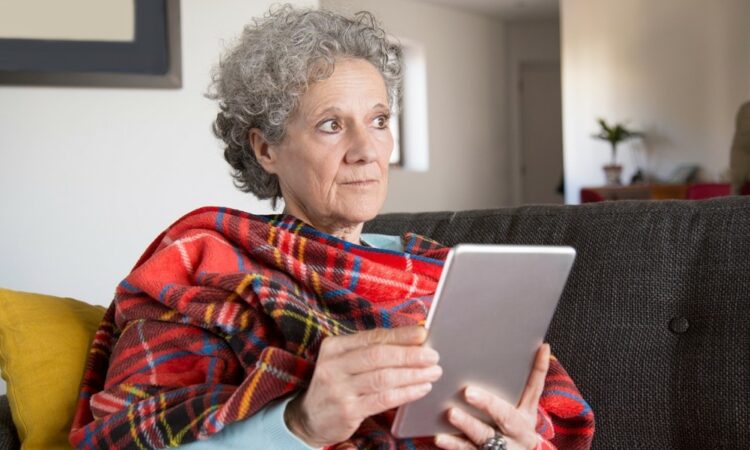Hollenbeck Palms
Dear Laura: My wife is showing signs of dementia symptoms but won’t go to the doctor

Dear Laura,
My wife has begun to display some unusual behaviors that are very different than she displayed in the past. Over the last two years she has missed doctor’s appointments, lunch meetings with friends and even missed our granddaughter’s birthday party last month. It is so unlike her. She has always been so organized and reliable. She also is having difficulties keeping names and relationships defined, and keeping up with conversations at the dinner table. It is as if her brain is “muddled” and her thinking has gaps sometimes, yet other times she seems completely normal. However, she is completely unaware of these changes that myself, and our adult children are observing more and more over time.
She is refusing to go to a doctor, and even acts surprised and defensive when we try to talk to her about it. I feel like I would like to get her to a doctor, however, I am not even sure how to approach this; how to convince her she needs an appointment with the doctor, what questions to ask and what information the doctor can best use to help us.
Can you guide us on what expectations we should have for a diagnosis and how to best communicate with the doctor about what we are seeing? Is it dementia? Is it too early to see a doctor?
Thank you,
-A concerned and loving family needing to better understand dementia
Dear Concerned Family,
Talking with a doctor about the possibility of your loved one presenting dementia symptoms is an important, but challenging first step. When you’re ready to begin this conversation, here are some tips to help you prepare to discuss dementia symptoms and the various causes with a doctor.
- Know your loved ones’ family, medical and prescription history
Diagnosing what is causing the dementia symptoms is a complex process—rather than using one definitive test, doctors and specialists rely on many different methods and tools to determine whether or not a person has a diagnosis of a brain disease, illness or stroke that is contributing to brain function loss and subsequent dementia symptoms. One key component of making a diagnosis is eliminating other conditions as the root cause of symptoms and behaviors. To do this, doctors need information about you and your history, including:
- Family history: Not all dementia is inherited, but certain types, particularly frontotemporal dementia and Huntington’s Disease, can be passed down genetically.
- Medical history: Knowing your medical history can help your doctor determine if you have certain dementia risk factors, or if your symptoms might be caused by a condition that you have that is unrelated to a brain illness or disease, such as depression, infections, medications or stroke.
- Prescription history: Certain prescriptions cause dementia-like side effects, such as forgetfulness or difficulty thinking and processing normally.
- Write down any of the changes in behavior and symptoms you have noticed – keep in mind there are many other often unrecognized symptoms above and beyond memory loss.
If you are addressing the dementia symptoms with a doctor, you likely have a reason behind your concerns. Maybe your loved one has begun to have difficulty processing and accessing information that came easily in the past such as appointments or is having trouble focusing on everyday tasks that they used to do without effort.
Any time something happens that causes you concern, make a note of what happened and when. This information will be valuable to your doctor when making a diagnosis. Be sure to focus on new or sudden changes. It’s common for people to forget things on occasion or have days when they’re in a bad mood, but if these things are happening with increasing frequency or to a greater degree than before, they’re worth discussing with a doctor.
- Ask others for insight
If you feel comfortable doing so, it can help to reach out to friends or family members who spend time with your loved one and ask them if they’ve noticed anything unusual.
And be aware that your loved one may not be able to see or understand what is happening, or be able to recognize that the dementia symptoms are evident and probably getting worse over time. Many individuals with mild to even extreme dementia symptoms suffer from Anosognosia-the inability to know they have a health condition and are experiencing dementia symptoms. This often makes them very resistant to care and an inability to understand that they even need care or support, which often contributes to caregiver frustration as they have to start making all care decisions without any buy in from the loved one.
- Come prepared with honesty
It’s not uncommon for people to omit important information during health appointments, or even to lie about things they’re uncomfortable or ashamed of. Others feel the need to say what they think the doctor wants to hear and may share inaccurate health information.
It may be tempting to minimize symptoms in hopes that will lessen your loved ones’ chances of being diagnosed with the cause of dementia symptoms. You may even feel the need to leave out difficult details, such as feelings of depression or uncomfortable changes in behavior because they’re not easy to talk about.
However, an accurate diagnosis will come sooner and easier the more open and honest you are. And the sooner a diagnosis is made, the easier it will be for you to connect with helpful resources and plan for the future based on your loved ones’ wishes and changing needs rather than someone else’s. Honesty may be hard in the moment, but it’s a worthwhile investment to make for the sake of your loved ones’ future care.
- Prepare questions
If you’re concerned about dementia symptoms, you’re sure to have a number of questions, and a health appointment is a great time to have them answered. Knowledge is power, and to become “dementia aware” is the road to feeling empowered as a care giver. Many people have concerns about bothering doctors or asking what they consider to be “stupid questions,” but receiving the information you need is far more important when it comes to your loved ones’ health and your peace of mind.
If you are looking for a certified “Dementia Aware Safe Space” for memory care, make sure you consider Hollenbeck Palms, as I have trained their entire staff on how to effectively communicate and care for people with dementia symptoms.
Sincerely,
Laura Wayman, The Dementia Whisperer


